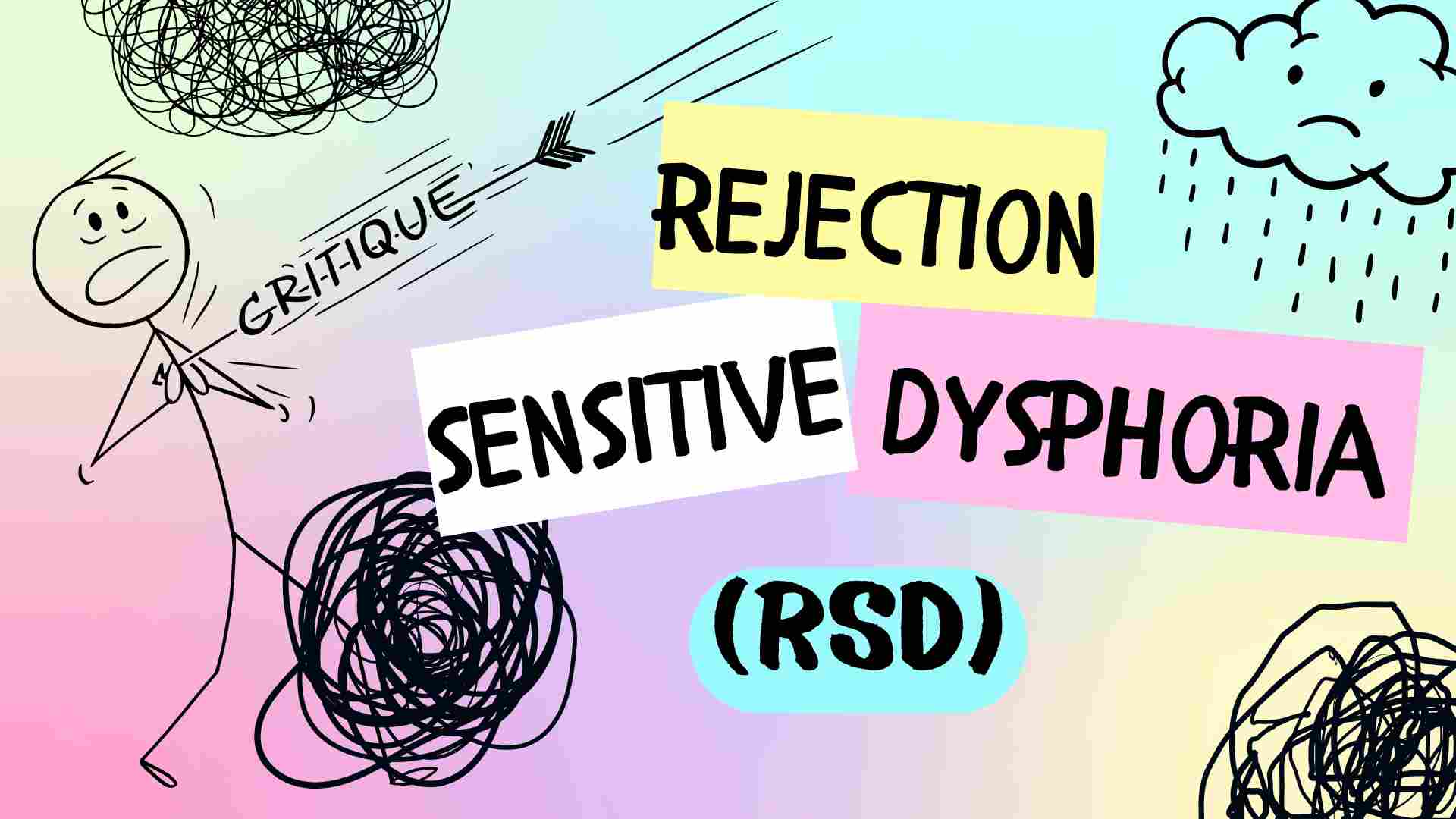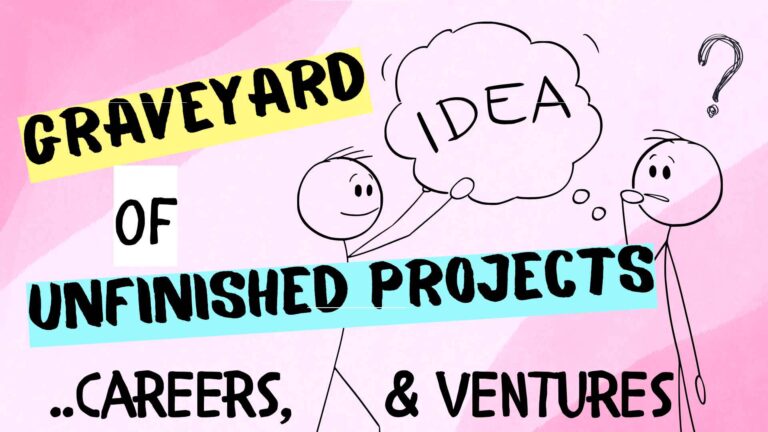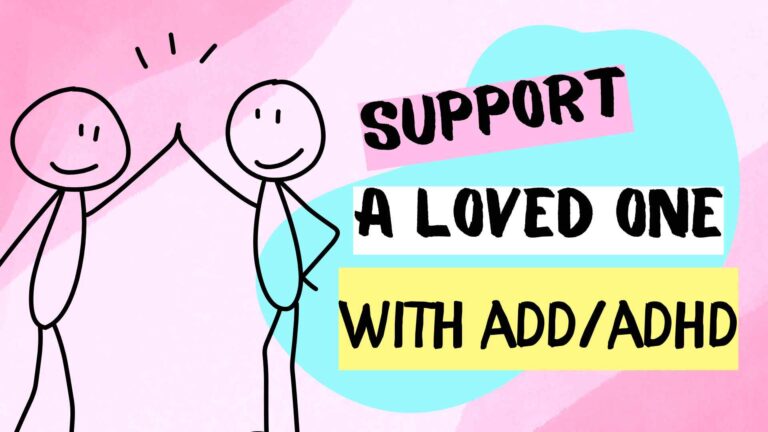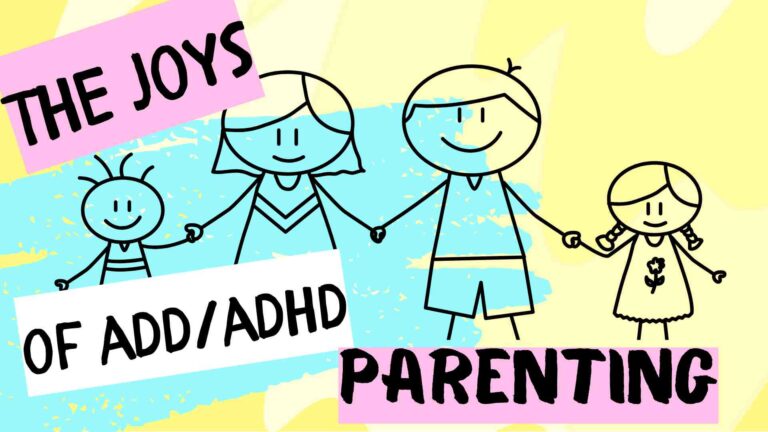RSD in Relationships: the Border Collie Effect

Ugh, one more thing for us to deal with: RSD.
If you haven’t heard of this term before, it stands for “Rejection Sensitive Dysphoria.” It’s a typical component of persons with ADHD (but others outside of ADHD can experience it, too).
Persons with RSD interpret even the faintest signals of exclusion as criticism, even if they aren’t genuinely there. They constantly scan their environment for rejection, and of course, find it.
Rejection sensitivity is part of ADHD. It’s neurologic and genetic. Early childhood trauma… does not cause RSD. Often, patients are comforted just to know there is a name for this feeling… almost 100% of people with ADHD experience rejection sensitivity. After hearing this diagnosis, they’re relieved to know it’s not their fault and that they are not damaged. -ADDitude Magazine
FYI: Read “How to Be an ADHD-Friendly Partner
Skip to the medical section for the mumbo jumbo, but for the partners living with someone with RSD, I’m here to offer support and solutions to navigate the turmoil. Read on to find out if you’re in the RSD zone of a relationship.
Table of Contents
- Rejection Sensitive Dysphoria: Outward Signs
- Rejection Sensitive Dysphoria: Common Triggers
- The affect on persons with RSD
- Challenges of RSD in relationships: the Border Collie effect
- RSD in medical terms
- Conclusion
Rejection Sensitive Dysphoria: Outward Signs
RSD is characterized by intense emotional and physical pain in response to perceived rejection. If you’re in a relationship, or know someone with ADHD, you may have witnessed the following behaviors:
- Sudden emotional outbursts following real or perceived criticism or rejection
- Withdrawal from social situations
- Negative self-talk and thoughts of self-harm
- Avoidance of social settings in which they might fail or be criticized (for this reason, RSD is often hard to distinguish from Social Anxiety Disorder)
- Low self-esteem, poor self-perception, feeling unworthy and insecure
- Rumination and perseveration
- Relationship problems
Rejection Sensitive Dysphoria: Common Triggers
ADDitude Magazine sums up the triggers of RSD as:
- rejection (the real or perceived withdrawal of love, approval, or respect)
- teasing
- criticism, no matter how constructive
- persistent self-criticism or negative self-talk prompted by a real or perceived failure
Neurodivergent Insights offers a longer, more in-depth list.
I was surprised to learn that RSD actually is felt by the person as, “an intense pain… often experienced as a physical “wound” (Dysphoria is the Greek word meaning unbearable). The person feels as if they were stabbed or punched in the chest. Commonly, people will hunch over, grimace, and clutch their chests when they describe their RSD experience.
For some, the unpleasant, physical side effects can manifest as digestive or head pain. The physical stress response could potentially exacerbate or even trigger acne or a skin condition like eczema.
The affect on persons with RSD
People with RSD can go in varying directions in their response to perceived intense criticism:
- They become people-pleasers to avoid the criticism
- They stop trying in life, as a tactic to avoid potential criticism
- They might turn to food as a coping mechanism
I think all of us knows a people-pleaser in our life. Unfortunately, it can result in boundary issues, or lack of. One woman stated that it “made me a narcissist magnet.”
The “stop trying” part is sad, because it extends to all facets of their life. This affects dating, applying for jobs/raises and living a full life.
The person with RSD can even assume a dangerous narrative, thinking that people always hate them and are plotting against them.
At other times, they can feel intense embarrassment. Because it manifests as real, physical discomfort, they will do anything to avoid that pain. Childhood embarrassments can revist their minds often.
I stumbled across a comment on a social media site, that the person with RSD developed a defense mechanism of always looking angry so people wouldn’t approach them. Wow, I think of the awkward encounters with people, leaving me thinking, “what is that person’s problem?” It could have been RSD.
Quite the opposite, persons with RSD may overachieve to balance out perceived negative comments. They constantly work to be the best at what they do and strive for idealized perfection.
Although RSD is neurologic and genetic, different childhood experiences, such as adverse childhood experiences can play into the severity of it. Given that fact that it is genetic, a parent could have displayed the same RSD behavior and difficulty regulating emotions.
More than likely, that parent couldn’t model correct behavior and responses. Even worse, they could have bombarded their child with a multitude of negative messages leaving the child to feel that they were not good enough.
Challenges of RSD in relationships: the Border Collie effect
For dog lovers out there, you’re familiar with the varying dispositions of different dog breeds. For years, my family raised Border Collies, a popular working dog breed, especially for sheep herding.
It always struck me how overly sensitive these dogs were. You could do something as simple as express your frustration that the garbage can fell over. To the dog, they interpreted your reaction (the tone in your voice) as disapproval with them, even though the tipped over garbage can had nothing to do with them.
Neurodivergent Insights compares this to a person wearing tinted glasses that are ultra-sensitive, “painting [the RSD person’s] world with this lens of perceived rejection.”
If you are the partner, and are continually puzzled by extreme reactions to non-issues, the Border Collie effect is what you are experiencing. The reaction doesn’t equate to the reality.
Although the person with RSD is challenged in the workplace, it’s the homefront that takes a hit. The daily interactions with loved ones leaves more opportunities for miscommunication.
What if both people in the relationship have ADHD? Up to 99% of adults with ADHD struggle with RSD symptoms, according to the studies by Dr. Bill Dodson. There is an extremely high chance both partners are dealing with it. I imagine the struggle is amplified.
In addition, RSD can be confused with other conditions. However, it is the long-term partner that witnesses the pattern and can say more confidently it’s RSD (this comment is not meant to replace the opinion of a trained medical professional). Still, it’s a relief for the non-RSD partner and RSD sufferer to have a name to attach to what they have been experiencing for years.
In the RSD partner’s shoes
I’m guessing, without realizing it, you’re walking on eggshells in your relationship. You’ve learned to adapt by keeping your comments neutral, and made sure you have taken every opportunity to give compliments to your ADHD partner.
Then one day, you notice things are not getting better, despite your efforts to neutralize communication. You also realize that you’ve been in a relationship that is void of support for yourself.
The need to have someone in your corner, offering encouragement and well-deserved compliments doesn’t exist. The support seems to go one way. You are in the RSD zone.
Oddly enough, the partner that is overly-sensitive to criticism has no problem handing the criticism out. As the non-RSD partner, you might find yourself dealing with tantrums, as well. There’s one more offshoot in all this: the blame game. The non-RSD partner seems to be blamed for everything, even if they have no connection to the source of the angst.
You may be on the receiving end of emotional and hurtful outbursts, receiving negative messages about the way you do things and the way you are. Often times, the non-ADHD person in the relationship goes the avoidance route. They think twice about “is this the hill I’m going to die on?” when deciding to bring up an important discussion or not.
This side effect has to do with the person with RSD deflecting any criticism of their own actions. Unfortunately, in order for the relationship to get to a better place, it requires taking responsibility for our actions and applying maturity – which can be difficult for a person with ADHD.
Ultimately, the non-RSD partner finds themselves continually sacrificing their needs to keep the peace. It’s no wonder that persons with ADHD have higher divorce rates than the rest of the population.
New relationship challenges
Dr. Samantha Hiew, PhD is the Founder of ADHD Girls and a neurodiversity and ADHD expert. She comments that persons with RSD may seek out sensitive and empathetic partners. Their calming personality can balance out the rough waters of the RSD person.
In addition, the person with RSD might choose to share that they tend to be a very sensitive person (of course, only if the person with ADHD even is aware of it). Being vunerable and sharing that fact gives the new relationship a better chance to continue.
My partner told me early on about RSD, so I always put into account that what he is experiencing is caused by RSD.
-Commentor, How To Manage Rejection Sensitivity
In the ADHD Chatter Podcast, hosted by Alex Partridge, Alex mentions that it’s the exciting parts of a person with ADHD that attract their partners. The new love may overlook the smaller negatives of having to deal with the RSD issues.
Being self-aware, with each person participating, can help. I shake my head when I hear about impulsive Las Vegas weddings that end in a divorce before they barely started – they enver had a chance to have a good fight. Arguments are a good thing, it reveals how each person handles conflict.
On the flip side for those of us who married young, we might have dated the person for a few years before we realized RSD was present. Past arguments might have been minor up to this point. As reality sets in with more life challenges, a pattern emerges of RSD reactions.
What about the people pleasers?
You’re probably thinking that you won the lottery if your significant other falls into the people pleaser bunch. Honestly, it probably is an easier boat to tow.
These RSD types experience higher levels of self-doubt in their life. You may find yourself constantly reinforcing that they are good enough. Their lack of self-confidence can be crippling, though.
According to Dr. Samantha Hiew, PhD , these people are in need of constant validation. The over-pleasers tend to give the versions of themselves that others will most like, and it can be exhausting.
What’s an ADHD partner to do?
This is tricky, no doubt. Telling the person you think they have RSD is opening the door wide open for a fight – and denial (the typical RSD fanfare). The ADHD partner may intentionally avoid discussing the matter because they fear the rejection that their mate might leave them.
In social forums, partners suggest choosing a back door in. They may show their loved one an article, and ask them for their thoughts on it. They may start the conversation about someone the couple mutally knows, and then ask the ADHD partner to give their viewpoint.
I have come across info that suggests writing a concern down, rather than telling the person can be a more effective approach. This is simply because some ADHD brains find written communication easier than verbal exchanges.
Spending time learning about each other’s love languages can help. This opens up opportunities to connect with your loved one in a way they readily accept.
Be patient. Having constructive arguments is something that can only be grown into, with hard work on both sides.
If the person is currently getting treatment, it will be much easier to bring up the RSD discussion.
FYI: Read “How to Be an ADHD-Friendly Partner
Differences between argument styles
This is a big one. First of all, we all have challenges in our life, and bring new baggage into the relationship. We argue differently, too.
One partner might want to settle an argument here and now, while another prefers the right time. There are also differences among women and men. If you’ve ever read the classic, “Men Are From Mars, Women Are From Venus” there are distinct gender differences on both sides that are brought into onflicts.
I hesitate to over-generalize, but the book proposes that women want to talk problems out, and men prefer to retreat to “their cave.” At other times, each person may require an incubation time of thinking and holding onto the information before chiming in.
Add in the fact the effect of changing hormones during the month for both men and women. Being less articulate, experiencing memory loss, changing energy levels, and reduced sleep patterns can make it even more challenging to navigate emotions. An impromptu argument could even be triggered from low blood sugar levels because someone skipped lunch.
Throw in alcohol/drug use that also affects how well we handle stress. Emotional maturity may differ as well. There might even be unresolved issues from the past. As Dr. Samantha Hiew, PhD puts it, “they’re not really arguing with you – their arguing with their mother.”
Whatever you do, don’t use the heat of an argument as a teachable moment. There may be opportunity later when everyone has calmed down.
-Renee’s Rabbit Hole
There are different nuances of RSD. Some may have developed a successful coping mechanism, but fail at dealing with the really big feelings.
Whatever you do, don’t use the heat of an argument as a teachable moment. There may be opportunity later when everyone has calmed down.
The key is having a relationship that gives each other the time, space, and understanding to recover.
Actionable steps for partners
Dr. Samantha Hiew, PhD does offer some hope.
She recommends telling the person with RSD that what they are feeling is valid. Dr. Hiew emphasizes that it’s important to get the person back into a state of regulation. There are a couple of ways to do this:
- Call a friend who can reinforce the good in them.
- Cold/wet/sweet physical sensations can remove the person experiencing an RSD moment (even a taste of lemon juice can reset them).
The person experiencing an RSD moment is temporarily unable to access the areas of the brain responsible for logical thinking. According to Dr. Hiew, “RSD is a mental hijack; it’s about what can we do to snap ourselves out of the moment.”
She also affirms that the person with RSD can feel shame, and is capable of knowing the difference between a rational and irrational reaction. Unfortunately, because the pain of the criticism is real, the person with RSD may intentionally lash out at their partner, wanting them to also see how the pain feels, even though the partner is an innocent bystander.
That’s why therapy is so important, because a therapist can train the person with RSD and give them tools to start learning how to deal with improper responses. Doing the work can lessen the reactions triggered by rejection. Once you start to understand yourself better, you are able to navigate rejection easier.
You might want to try looking at the ADDitude Magazine website for their Rejection Sensitive Dysphoria: Symptom Test for ADHD Brains to help you gain clarity on symptoms.
Relatable scenarios
If you’re married or a partner to someone with RSD, you may have encountered similar situations like these:
RSD partner:
“Why are you always yelling at me?”
“Why are you telling me what to do?”
“It’s not my fault.”
“Why did you do that?”
“You don’t like it.”
The person with RSD may seek simple feedback, such as for cooking or a building project. I’ll say this quite bluntly: you’re screwed. If you say the dish needs more salt, it becomes an insult to their cooking. If you point out that something isn’t level, they look at you in disgust.
A denial of cuddling due to exhaustion is interpreted that you have great disdain for them. This is the extreme skewing of the RSD mind. Then the lying begins. You might not really like the food dish at all, but you grin, give a compliment, and finish your plate.
RSD in medical terms
It was Dr. William Dodson, a renowned expert in ADHD, that shed light on the profound association between RSD and ADHD. It was Dr. Paul Wender who gets credit for the early observations, but it was Dr. Dodson in the 1990s who coined the term and directly connected it with ADHD. Although RSD is often linked to ADHD, it is not exclusive to it and can be present in other mental health conditions.
FYI: RSD is sometimes called “hysteroid dysphoria” in Europe. The EU has chosen the more inclusive term of emotional dysregulation (ED) instead of RSD and include it as one of the fundamental features in the ADHD syndrome.
Treatments
Treatments are also listed on the Neurodivergent Insights website. Refer too their site for more explanation. The list includes Cognitive Behavioral Therapy (CBT), Acceptance Commitment Therapy (ACT).
Therapy can cover the basics of learning to regulate emotions (breathing techniques), learn self-acceptance and compassion, and improving one’s communication and interpersonal skills.
There are possible medications, but I’m not about that. You can explore that in the RSD article on the ADDitude Magazine website.
Conclusion
Whew! I know this has been a lot to take in. Thanksfully, doctors and therapists continue to explore and understand RSD.
If you’re living in the trenches with someone with RSD, I’m sending out a virtual hug. RSD is a journey. Through hard work and understanding, you can get through it!
FYI: Read “How to Be an ADHD-Friendly Partner
#inthistogether -Renee




